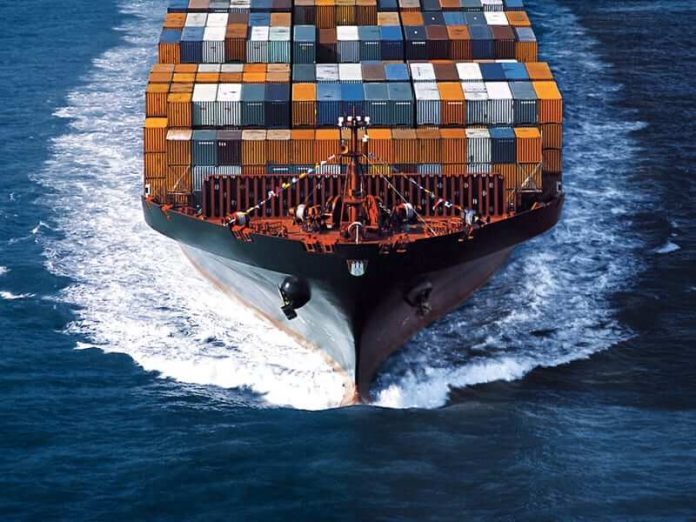This article is written by Ridhi Mittal, a student of Symbiosis Law School, Noida. This article talks about the maritime piracy laws and certain important judgments that were passed concerning the said laws by the Supreme Court.
Table of Contents
Introduction
Maritime piracy laws are the laws related to maritime crime. Maritime crime has been a great problem. This worldwide issue ranges from people smuggling to drug trafficking. Piracy refers to all the illegal acts including robbery and other high sea crimes occurring outside the 12 nm limit of territorial waters. Whereas robbery occurring within the 12nm limit is treated as a crime of robbery under the laws of the coastal state. Maritime piracy was defined under Article 101 by the United Nations Convention on the Law of the Sea, 1982. Maritime piracy is an international crime that is to occur on the high seas, i.e., on international waters.
Crimes under maritime piracy
There are various types of crimes that are covered under the ambit of maritime piracy. Some of them are:
- Hit and run crime by the pirate ships. It is theft of cash and kind stored in the ship by the sea pirates.
- Kidnapping for ransom is done by removing a person from the ships and then demanding extortion money. Kidnapping is also done to take kind or cash for survival by the pirates.
- Hijacking a ship for getting ransom or the detention of the target to extort the release money
- Stealing ships and cargo by targeting vessels, done often during Ship-Ship operations to remove cargo.
All in all, every maritime piracy act is done to have money by the pirates. They aim to extract the maximum amount of monetary value possible.
This extortion is done by the pirates either by using violence against the vessels and the crew members as a means or by attempting to take over the vessels. Attempts to counter the ship’s defences and ship protection measures by use of ladders, grappling hooks, and weapons deliberately used against the vessel are also witnessed.
Anti Maritime Piracy Bill
The Anti-Maritime Piracy Bill was passed in 2019. This Bill was introduced in Lok Sabha on December 09, 2019. Then it was referred to the standing committee on 23rd December 2019. By February 11, 2021, the standing committee passed it as a report. This Bill gave authorization to the Indian authorities to take action against piracy on the high seas. It is based on the guidelines of the UN Convention on the law of the sea. The laws or the Bill has jurisdiction till 200 nautical miles from India’s coastline. Any action occurring within this diameter comes under the ambit of Indian authorities. As per this Bill, piracy covers inciting and intentionally facilitating such acts of violence, and voluntarily participating in the operation of a pirate ship or aircraft. The punishment for the acts of piracy was also laid down in this Bill. Both life imprisonment and death sentences can be given in case of piracy depending upon the nature and kind of piracy. Participating, organizing, aiding, supporting, attempting to commit, and directing others to participate in an act of piracy will be punishable with up to 14 years of imprisonment, and a fine. Whereas if the act of piracy seeks to cause the death of another, a death sentence must be ordered. The Supreme Court held that the mandatory death sentence for any offence is unconstitutional and violative of Article 14 and Article 21 of the Indian Constitution. Yet, the bill was passed by the parliament including a mandatory death penalty for some offences. The central government, in consultation with the Chief Justice of the concerned High Court, may notify Sessions Courts as the Designated Courts under this Bill. The courts are to try the offence against the person in custody of the Indian navy or coast guard and an Indian citizen, foreign resident in India, or a stateless person. The Court will not have jurisdiction over offences committed on a foreign ship unless an intervention is requested either by the country of origin of the ship or by the ship-owner or any other person on the ship.
Cases of maritime piracy
There have been a lot of cases of maritime piracy that have been tried in the court of law. Many have witnessed incidents of maritime piracy on the high seas. Some of the cases are discussed below.
The Republic Of Italy v. Union Of India & Ors, 2012
The Republic of Italy V. The Union of India, (2012) case took place on September 4, 2012. In this case, Kerala police arrested two Italian marines for an Indian fisherman who was killed on board a fishing vessel 20.5 nautical miles off the Kerala coast. It was held by the supreme court that the state of Kerala had no jurisdiction to investigate the incident. It was ordered by the court for the respondent to set up a session court to try and dispose of the case in respect of the Maritime Zones Act of 1976, the Indian Penal Code, the Code of Criminal Procedure, and UNCLOS. Liberty was given to the appellant, the Republic of Italy, to raise the question of jurisdiction once evidence was adduced on the parties’ behalf. The Indian Ministry of Home Affairs, in respect to the court’s direction, appointed the National Investigation Agency for handling the investigation. It was informed by the respondent to the court that the case was under investigation by the NIA. The appellant argued that it was a violation of the forum by giving the investigation authority to the NIA. Also, the NIA was permitted to invoke the Suppression of Unlawful Acts Against Safety of Maritime Navigation and Fixed Platforms on Continental Shelf Act, 2002, which provided for the death penalty to be applied in any of the scheduled offences. Appellant of the case also said here that because of the exclusion of the act in the original charge-sheet, the investigating authorities were not permitted to take recourse to its provisions in the light of the Court’s directions. This appeal was dismissed by the court as it did not see any reason for calling upon the agency and deciding the conduct of the investigation. The court gave its decision concerning the courts having jurisdiction over Italian marines. The court allowed the respondent to decide on an agency that is neutral to both parties and thereafter to have a dedicated Court to have jurisdiction to conduct the trial. The judges, in this case, were Altamas Kabir CJI, Anil R Dave, and Vikramajit Sen JJ.
United States v. Smith, 1820
This case of US v. Smith, (1820) is regarded as the Supreme Court decision on the subject of piracy. This case dates back to the March of 1820 in Virginia. This case proved to be a great influence on both international as well as domestic piracy laws. It talked about universal jurisdictions and a range of broader themes of the countries in respect of piracy.
Issue of the case
Whether the definition of piracy given by the Act of 1819 was within the power of Congress to define and punish piracies.
Held
Smith, in this case, declared that the definition of piracy was well within the constitutional powers of congress to define piracy by the law of nations as a robbery upon the sea. Smith court examined a lot of treaties in various languages like English, Latin, French, Spanish, and also the case laws. It laid down that various sources depict the same definition of maritime piracy under international laws. The common law recognizes and punishes the offence of piracy as it is considered against the law of nations and the universal of society because a pirate is seen as an enemy of the human race.
The Almezaan
It refers to the action that took place on 23 March 2010. It was an attack by Somali pirates. It was further captured by the Spanish navy. The private security guards, in this case, onboard a UAE-owned cargo ship shot dead a pirate who was in an attempt to onboard the ship off the coast of Somalia. Later on, a Spanish warship took over the control of the boat and pirates and the captured pirates were released by the captain.
In this case, the questions that were raised were:
- Do the piracy laws apply to the actions of private agents or security guards?
- The clarity of what jurisdiction does the law and authority have, and till where?
- The effectiveness of private security guards on the board merchant ships
The United States v. Said, 2010
The United States v. Said, 2010 case talks about pirates approaching the USS Ashland in a small skiff in the Gulf of Aden. The USS Ashland was shot by one of the pirates with the help of a firearm. The crew returned fire, destroying the skiff which led to the killing of one passenger. The pirates neither tried nor did they board the USS Ashland. They were taken into custody by the crew members. The pirates were indicted on multiple counts. They moved for dismissal of the count for violation of 18 U.S.C. § 1651. It was done on the ground that their act was not considered piracy since the boarding of the place did not take place and neither was the control of ASS Ashland taken by the pirates. The motion was granted by the district court. It was held that due process considerations did not allow construction of the piracy statute to include actions other than robbery or forcible depredations upon the sea. This was as per the guidelines and actions of the US v. Smith case and the definition of piracy given then.
Conclusion
Maritime piracy laws evolve around the cases of piracy happening on the high seas. It talks about the types of offences and their punishments by the court. There are limitations to the jurisdictions of the countries due to which their laws apply to a certain area or parameter only. For instance, Indian maritime piracy laws apply to all the piracy acts happening within the boundaries of India and 200 nautical miles from the Indian coastline. Ahead of that, the jurisdiction of Indian courts ends and any case happening beyond that distance won’t be dealt with by the Indian authorities. There are various supreme court judgments on maritime piracy laws. Due to these judgments, the law has kept evolving. All the above-mentioned cases might have different facts and issues, but all of them were set forth on the lines of piratical acts on the part of the defendants. Every country has its jurisdictions and laws to handle the cases of maritime piracy and deliver a fair judgment.
References
- https://dg.dryadglobal.com/what-is-maritime-piracy?hsLang=en
- https://dg.dryadglobal.com/piracy-in-maritime-law
- https://prsindia.org/billtrack/the-anti-maritime-piracy-bill-2019
- https://www.tandfonline.com/doi/full/10.1080/25725084.2020.1788200
- https://cmlcmidatabase.org/republic-italy-v-union-india
- https://scholarlycommons.law.northwestern.edu/cgi/viewcontent.cgi?article=2493&context=jclc
- https://caselaw.findlaw.com/us-supreme-court/18/153.html
- https://www.lawpipe.com/U.S.-Supreme-Court/United_States_v_Smith_(1820).html?hilite=
- https://www.nytimes.com/2010/03/25/world/africa/25pirate.html
- http://www.bullivant.com/Maritime-Piracy-in-US-Courts
LawSikho has created a telegram group for exchanging legal knowledge, referrals, and various opportunities. You can click on this link and join:
https://t.me/joinchat/J_0YrBa4IBSHdpuTfQO_sA
Follow us on Instagram and subscribe to our YouTube channel for more amazing legal content.
 Serato DJ Crack 2025Serato DJ PRO Crack
Serato DJ Crack 2025Serato DJ PRO Crack











 Allow notifications
Allow notifications


